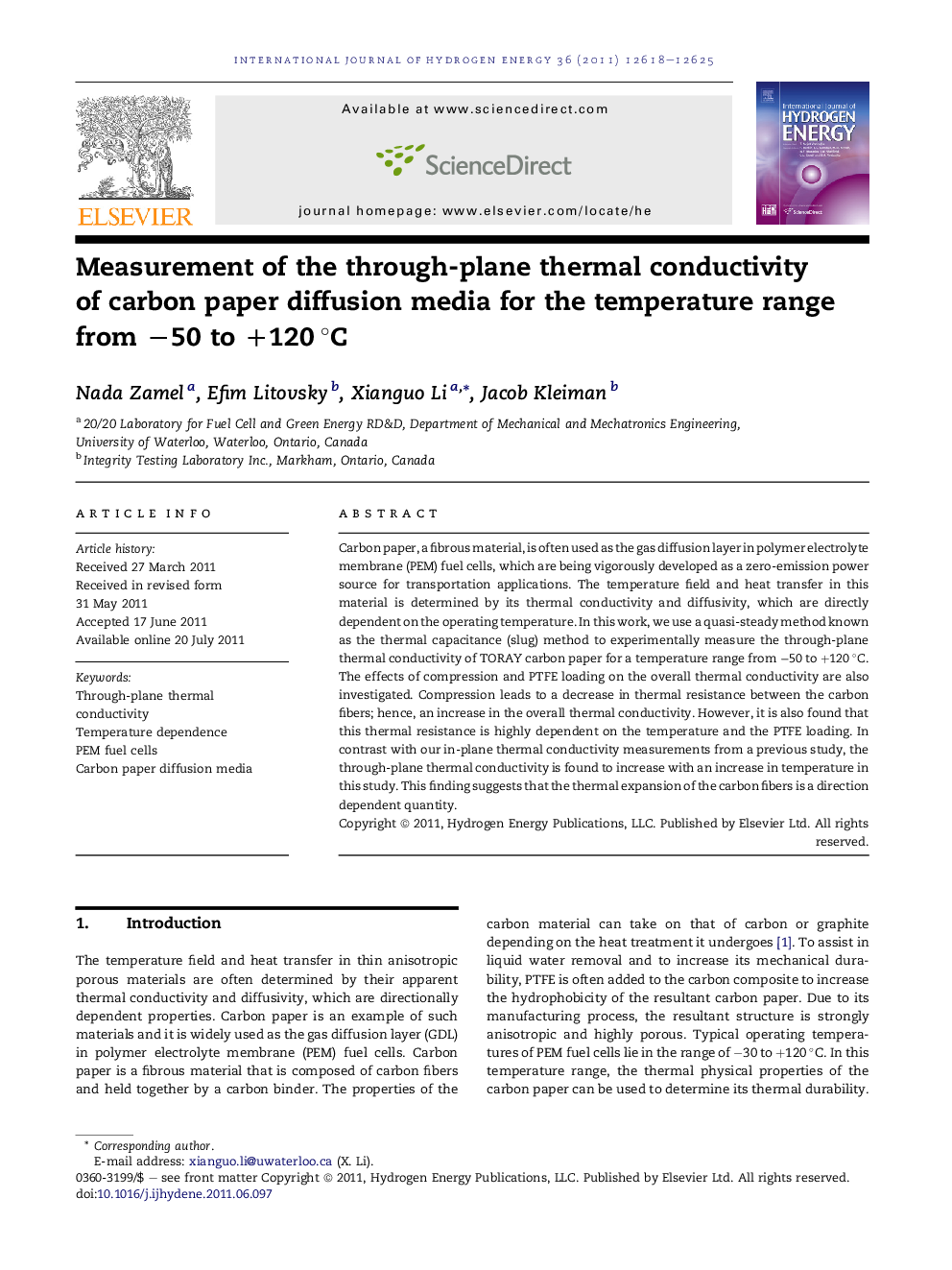| Article ID | Journal | Published Year | Pages | File Type |
|---|---|---|---|---|
| 1282465 | International Journal of Hydrogen Energy | 2011 | 8 Pages |
Carbon paper, a fibrous material, is often used as the gas diffusion layer in polymer electrolyte membrane (PEM) fuel cells, which are being vigorously developed as a zero-emission power source for transportation applications. The temperature field and heat transfer in this material is determined by its thermal conductivity and diffusivity, which are directly dependent on the operating temperature. In this work, we use a quasi-steady method known as the thermal capacitance (slug) method to experimentally measure the through-plane thermal conductivity of TORAY carbon paper for a temperature range from −50 to +120 °C. The effects of compression and PTFE loading on the overall thermal conductivity are also investigated. Compression leads to a decrease in thermal resistance between the carbon fibers; hence, an increase in the overall thermal conductivity. However, it is also found that this thermal resistance is highly dependent on the temperature and the PTFE loading. In contrast with our in-plane thermal conductivity measurements from a previous study, the through-plane thermal conductivity is found to increase with an increase in temperature in this study. This finding suggests that the thermal expansion of the carbon fibers is a direction dependent quantity.
► Quasi-steady thermal capacitance method is used to measure the through-plane thermal conductivity. ► Measurements are done for the temperature range −50 to +120 °C. ► Effects of compression and Teflon are investigated. ► The effect of temperature on the conductivity is dependent on compression pressure.
